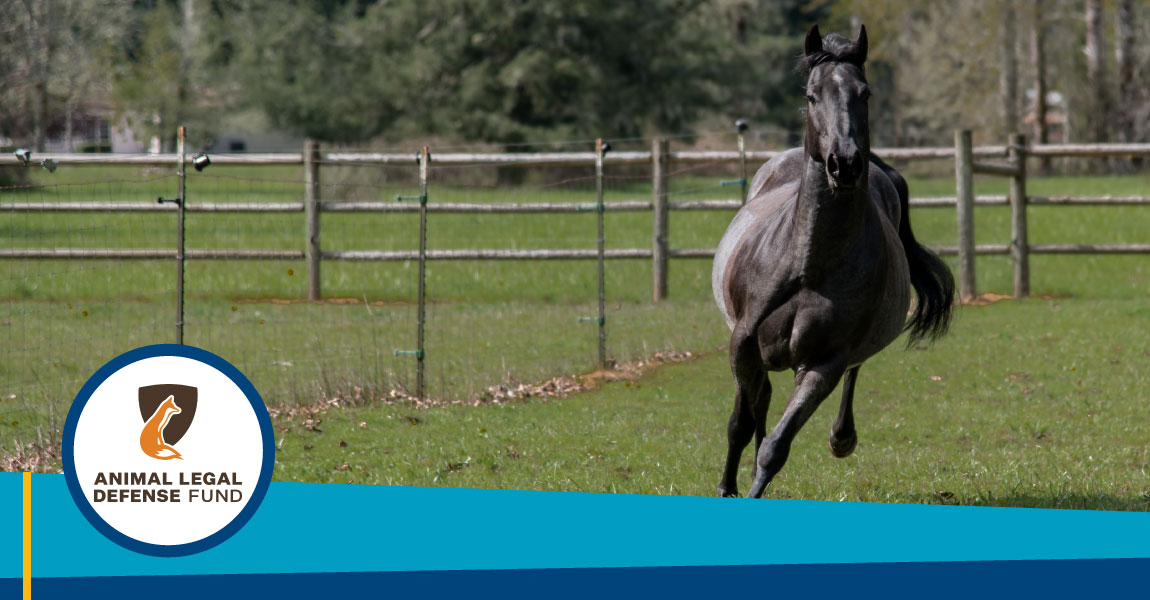The Animal Legal Defense Fund’s mission is to “protect the lives and advance the interests of animals through the legal system. The Animal Legal Defense Fund accomplishes this mission by filing high-impact lawsuits to protect animals from harm, providing free legal assistance and training to law enforcement and prosecutors handling animal cruelty cases, supporting tough animal protection legislation and fighting legislation harmful to animals, and providing resources and opportunities to law schools, law students, and legal professionals to advance the emerging field of animal law.”
Featured Guest:
Stephen Wells,
Executive Director
Animal Legal Defense Fund
Approach to Collaboration
Collaboration is essential to the work the Animal Legal Defense Fund does. They are very intentional in this aspect of their strategic planning as well as forming partnerships with students, law schools, law firms, and attorneys for litigation and advocacy work. In addition, the Animal Legal Defense Fund represents plaintiffs that are often other animal protection organizations that reach out for legal representation. Providing legal assistance allows them to achieve common goals. Staying open and seeking collaborations with organizations that work on other issues such as environmental protection and social justice help to advance their collaborative efforts.
From Stephen’s perspective, it is common to see non-profit organizations that are reluctant to collaborate. There is some fear involved with being overshadowed when sharing credit for collaborative work. For this reason, knowing the apprehensions that collaborations may bring, they communicate upfront with their partners about such concerns. Having an agreement that sets clear responsibilities and expectations helps in managing media releases transparently so that no one feels overshadowed by the other party. Written agreements with their partners further assist in addressing these issues.
The Animal Legal Defense Fund stays available to collaborate with organizations that don’t necessarily share its perspective on some issues. It is enough to have a shared stance on a particular issue that dovetails with each organization’s vision and values—recognizing that we can be stronger together. Acknowledging varying perspectives is also part of the upfront conversations the Animal Legal Defense Fund has with their partners.
As a piece of advice for the sector, Stephen encourages organizations to explore a wide range of potential collaborations, and not to overlook opportunities to collaborate with non-traditional partners, that is, ones that don’t necessarily share your entire mission but share common goals. This not only brings more resources together to achieve a goal but also exposes the audiences of both organizations to different perspectives. When you identify a potential collaboration partner, reach out and don’t be afraid of failure. Even collaborations that don’t work out provide great lessons for future efforts. Most issues, real or perceived, can be easily resolved through clear communication and a recognition that both organizations will benefit their missions by working together.
Application of the 9 Considerations for Collaboration
Build Trust
Building trust is accomplished through direct and transparent communication, as mentioned above. It is imperative to understand the other group’s perspectives and motivations to find connecting points and shared channels of communication.
Have a Vision
Strategic planning should be well-thought-out and intentional concerning collaborations with both traditional and non-traditional partners. In this process, the focus is on where the Animal Legal Defense Fund is going, what its goals are, and with whom collaborations can advance their mission and goals. For example, if the Animal Legal Defense Fund works with other organizations with specific expertise or strengths, like environmental groups, there is great opportunity for both groups to advance a common goal and bring more resources to the effort.
Seek to Assure the Success of Your Collaborators
Communication between partners is essential for understanding what each is trying to achieve and to ensure that each obtains credit for its participation and does not feel overshadowed by the other.
Take Stock
The Animal Legal Defense Fund contributes their deep expertise on issues in animal law, which is a big part of what they offer to their partners. Cultivating and sharing that expertise is a large part of their mission. The Animal Legal Defense Fund also provides resources and feedback that are helpful to local groups even when not participating directly in a collaborative effort. For example, the pro bono network they have built through their work with law firms and attorneys is a great resource for the Animal Legal Defense Fund’s own legal work, but one that they often share with other organizations.
Fail Fast, and Build Rigorous Feedback Loops
It is important to be experimental and not to be afraid of failing. Sometimes the Animal Legal Defense Fund has been unsuccessful in their coalition work, but they accept this, acknowledging that it is part of the process. It is essential to always keep trying.
Take a Portfolio Approach
The Animal Legal Defense Fund collaborates with a variety of groups and organizations that have different focus areas. For example, they collaborate with law enforcement professionals, prosecutors, and prosecutorial organizations on animal cruelty issues, offering training and direct assistance with cases. This effort has led to an animal cruelty-focused annual conference, co-hosted by the Animal Legal Defense Fund and the Association of Prosecuting Attorneys.
Consider Non-traditional Partners
The Animal Legal Defense Fund is very intentional in collaborating with non-traditional partners because of the amount of overlap on the issues they deal with. Many of the Animal Legal Defense Fund’s collaborations involve groups that focus on related problems such as the environmental impacts of factory farming, which also impacts workers’ rights, food safety, and public health. The Animal Legal Defense Fund is concerned with justice in a broad sense. An example is the work they have undertaken against Ag-Gag laws (anti-whistleblower laws that benefit the animal agriculture industry) in different states. They are leading the fight against Ag-Gag laws in collaboration with other animal protection organizations but also with non-traditional partners like journalism groups, civil liberties groups, workers’ rights organizations, and others.
Keep Your Donors Apprised of Your Collaborations
More and more, Stephen finds that donors appreciate and expect collaboration as a value in the nonprofits they support. So much so, that the Animal Legal Defense Fund now maintains a “Collaborations” page on its website. It demonstrates to donors that they are leveraging the value of their donations by creating a larger and stronger force for change through collaborative work. It also demonstrates that their organization works well with others and is pragmatic and creative in how it accomplishes its mission.
Future Collaborations
The Animal Legal Defense Fund continues to seek more, and more diverse, collaborations. Many of the issues it focuses on have natural connections to other matters of justice. For example, animal cruelty has been linked to property crimes and violent crimes, particularly domestic violence. Working with groups focused on domestic violence helps both animals and human victims by, for example, making sure shelters for victims allow companion animals (often victims of domestic violence will not leave a dangerous situation if they cannot take and protect their companion animal). Similarly, modern factory farming of animals is not just unimaginably cruel for animals, it is also a major source of tremendous pollution and greenhouse gases (emissions that exacerbate the climate crisis). This creates a prime opportunity to collaborate with large environmental organizations focused on pollution and climate change with the Animal Legal Defense Fund adding its expertise on laws that protect animals.


